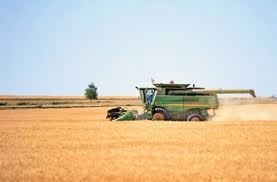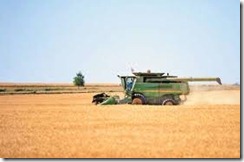Abu Dhabi World food prices remained almost unchanged between July and August this year, according to the Food and Agriculture Organisation Food Price Index published yesterday.
While the FAO Food Price Index (FFPI), which averaged 231 points last month — down by one point from 232 in July, it is 26 per cent higher compared to August 2010. It stands at only six points below the Index’s all time high of 238 points in February 2011.
The majority of this year on year increase has come in the increase of cereals, said Giyas Gokkent, Chief Group Economist at the National Bank of Abu Dhabi. “It’s gone up 36 per cent year on year,” he said. The second category to have contributed to the rise in food prices is the meat category, with a 15.8 per cent year on year, he added.
Within the index, cereal prices rose, reflecting the fact that although cereal production is expected to increase, it will not do so by enough to offset the additional demand, so that stocks continue to be low and prices continue to be high and volatile, the FOA statement said.
Average wheat prices were also up 9 per cent in August given the strong demand for feed wheat and shrinking supplies of high quality wheat. Nonetheless, world wheat production is forecast to increase by 4.3 per cent (or 28 million tonnes), only 4 million tonnes below the 2009 record, the statement explained. “What this suggests is that food prices will continue to rise in the GCC [Gulf Cooperation Council] and will affect the economies with lower average income,” Gokkent said.
Countries with lower income levels would be impacted by inflation more than other countries because with a lower income a larger portion is spent on food, he explained.
In the GCC, for example, countries like Oman and Saudi Arabia would be more impacted because of the weight of the food category. “In Saudi Arabia the weight of food category is 26 per cent of their consumer price index. In Oman, it’s 30.4 per cent,” he said. “The UAE’s weight of food category is only 13.9 per cent, so it won’t be as affected as the other two because it’s a richer country on a per capita basis.”
Gokkent said that much of what is happening mirrors what is happening with the energy prices. “I think the key will be the direction which oil prices take,” he said.
“If there’s no sudden global meltdown, then food prices will stabilise,” he said. “If there is a global economic slowdown then you would expect to see also a decline in perhaps oil prices and in that food prices would come down,” he added.
high demand
upward trend
26%
increase in FAO food price index
9%
increase in average wheat prices in August


Deprecated: strpos(): Passing null to parameter #1 ($haystack) of type string is deprecated in /home/agriviek8Qv/agriviet.net/public_html/wp-includes/comment-template.php on line 2522